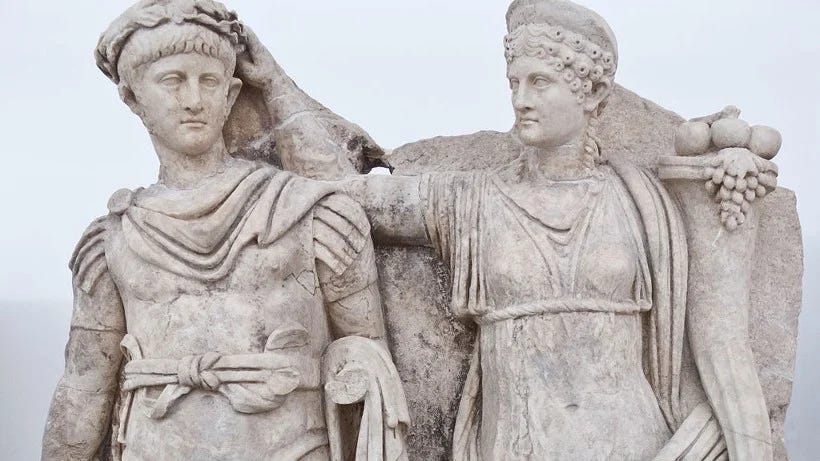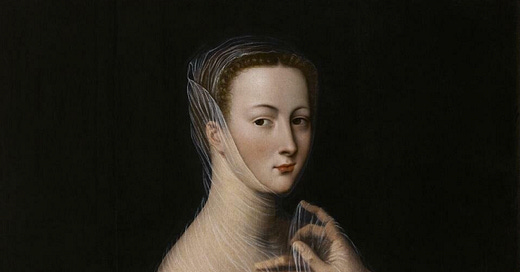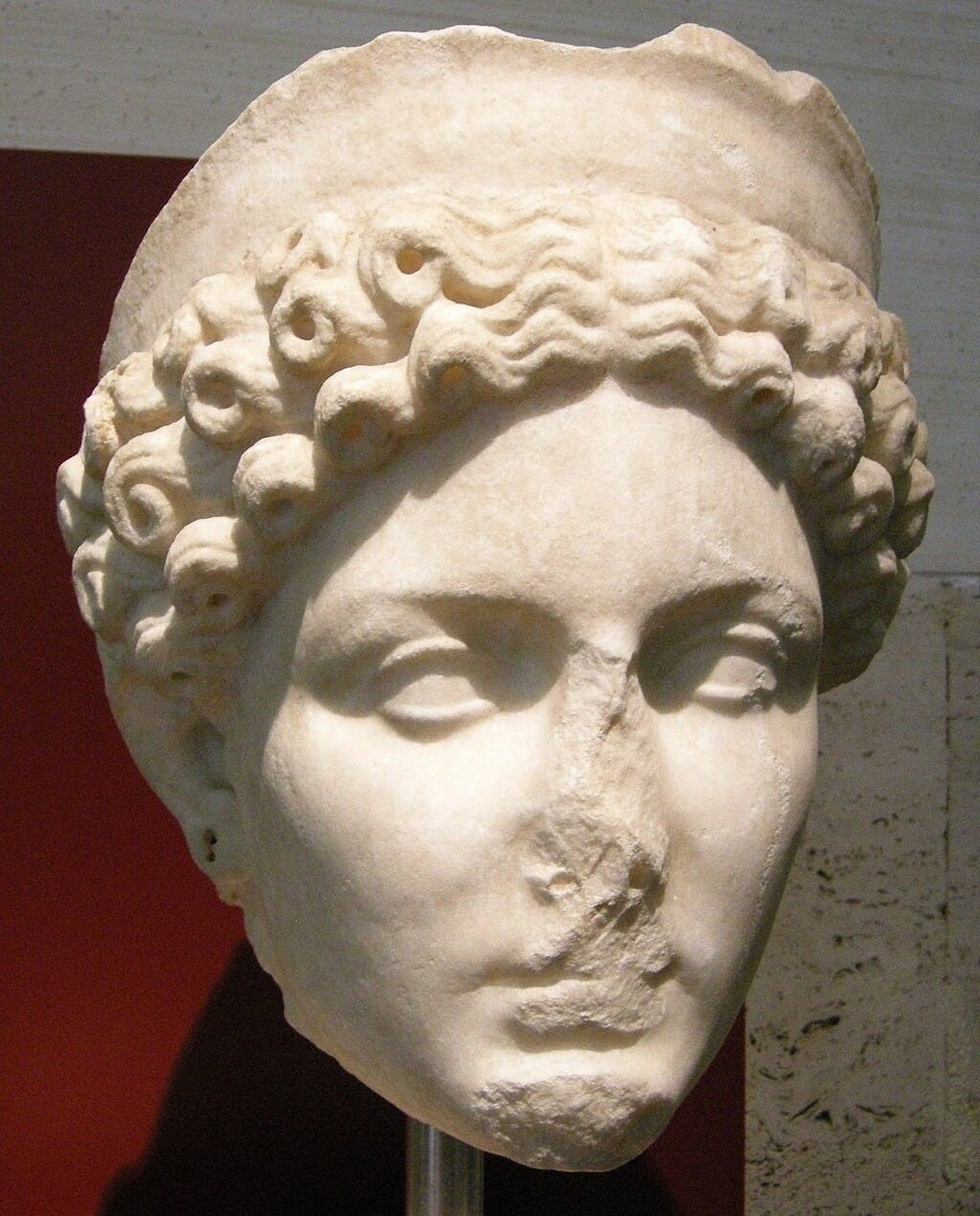The Emperor Nero's Henry VIII Problem - Part One
A wife you don't want. A woman you do. What's an emperor to do?
“Well then, give her back her dowry.”
So Burrus – praetorian prefect and longtime imperial advisor – is said to have replied when the young Emperor Nero suggested he might get divorced. Burrus was notorious for his bluntness, and this was a much bolder response than it first appears: the wife Nero was considering divorcing was Octavia, daughter of the previous emperor Claudius, and her “dowry”, Burrus was suggesting, was the empire itself.
Nero and Octavia married in AD 53. He was around fifteen; she perhaps little more than thirteen – and his stepsister. Nero’s mother Agrippina had married Octavia’s father Claudius a few years before, and this new match consolidated the blending of their families. It also positioned Nero as a potential imperial heir.
When Claudius died the following year (poison! People whispered, as they always did) it was indeed Nero who succeeded him on the imperial throne.

Nero and Octavia’s marriage had been conceived from the start as one of political convenience, but even by those standards it was a particularly unhappy one. The pair were strikingly ill-matched. Nero’s character tended towards performance and sensuality; Octavia’s to silence and self-control.
Before she had turned ten, Octavia had seen her mother – Claudius’ third wife and first empress, Messalina – executed on accusations of adultery, treason, and bigamy. Messalina had been characterised by demonstrative passion and so Octavia cultivated an appearance of cold-blooded serenity in the hope that it might save her from her mother’s fate.
At fourteen, a year into her marriage to Nero, Octavia watched her brother Britannicus die at dinner. Everyone believed him to have been poisoned by Nero and this time the rumours had more basis. After he collapsed, Britannicus was carried out and the banquet resumed. Octavia said nothing. Although she was young, Tacitus says, she had already “learnt to conceal her pain, her love, all her feelings”.
Those traits which should have recommended Octavia as a Roman wife – her nobility, her modesty, her placidity – seem to have repulsed Nero. She was at least as high-born as he was; he resented that. She was modest and virtuous; that bored him. She was composed; he wanted passion.
Nero looked almost immediately beyond his marriage bed. His first affair of note was with an ex-slave woman named Acte, but towards the end of the 50s AD, she too would be supplanted by a noblewoman named Poppaea Sabina.
Poppaea was a woman in possession of everything, Tacitus tells us, ‘except a decent conscience’. She was an heiress, a beauty, and a wit. And she was never constrained by her feelings when her own advantage might be at stake. For all her private promiscuity, Poppaea knew how to play with the appearance of modesty. ‘She appeared but rarely in public,’ Tacitus writes, ‘and then with her face half-veiled, so as never to satiate her beholder – or perhaps because it adorned her better’.

And she also knew how to play with Nero’s mind. First it was all passion, with Poppaea claiming that she’d been ‘captured by Nero’s looks’ and that she was ‘powerless in the face of her own desire’.
Then, once he was hooked, she pulled back. If Nero asked her to stay another night at the palace she’d refuse: reminding him that she was married; complaining about his ongoing affair with the freedwoman Acte; eulogising her husband who, she said, seemed more imperial than a man like Nero who kept the company of ex-slaves.
The strategy worked. Acte was duly sidelined and Poppaea’s husband packed off on a long and inconvenient provincial command.
In AD 62 the affair reached such a pitch that Nero turned his mind seriously to the idea of marriage. By this time Burrus was dead, as was Nero’s mother Agrippina, another of Octavia’s defenders. And far more importantly, Poppaea, who had long been advocating for her own promotion, was pregnant.
The question now was how to get rid of Octavia…





I really enjoyed your book on Messalina and excited you have a Substack!
I'm glad I have found your Substrack. It's full of interesting texts.
Best wishes